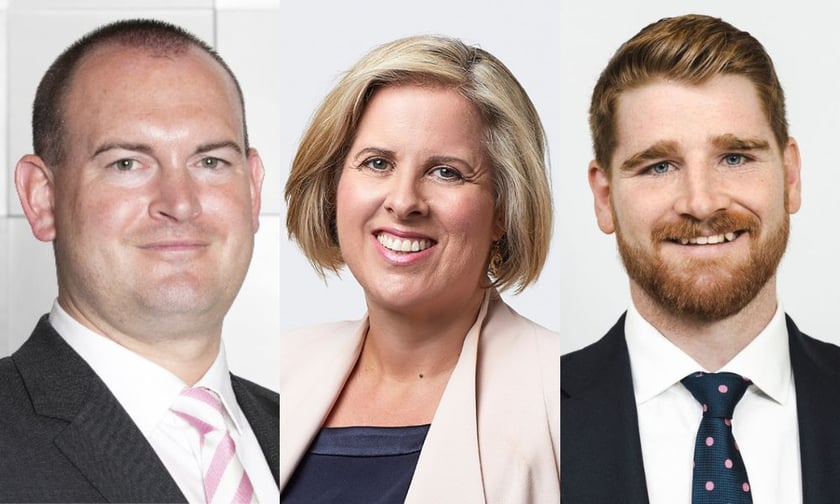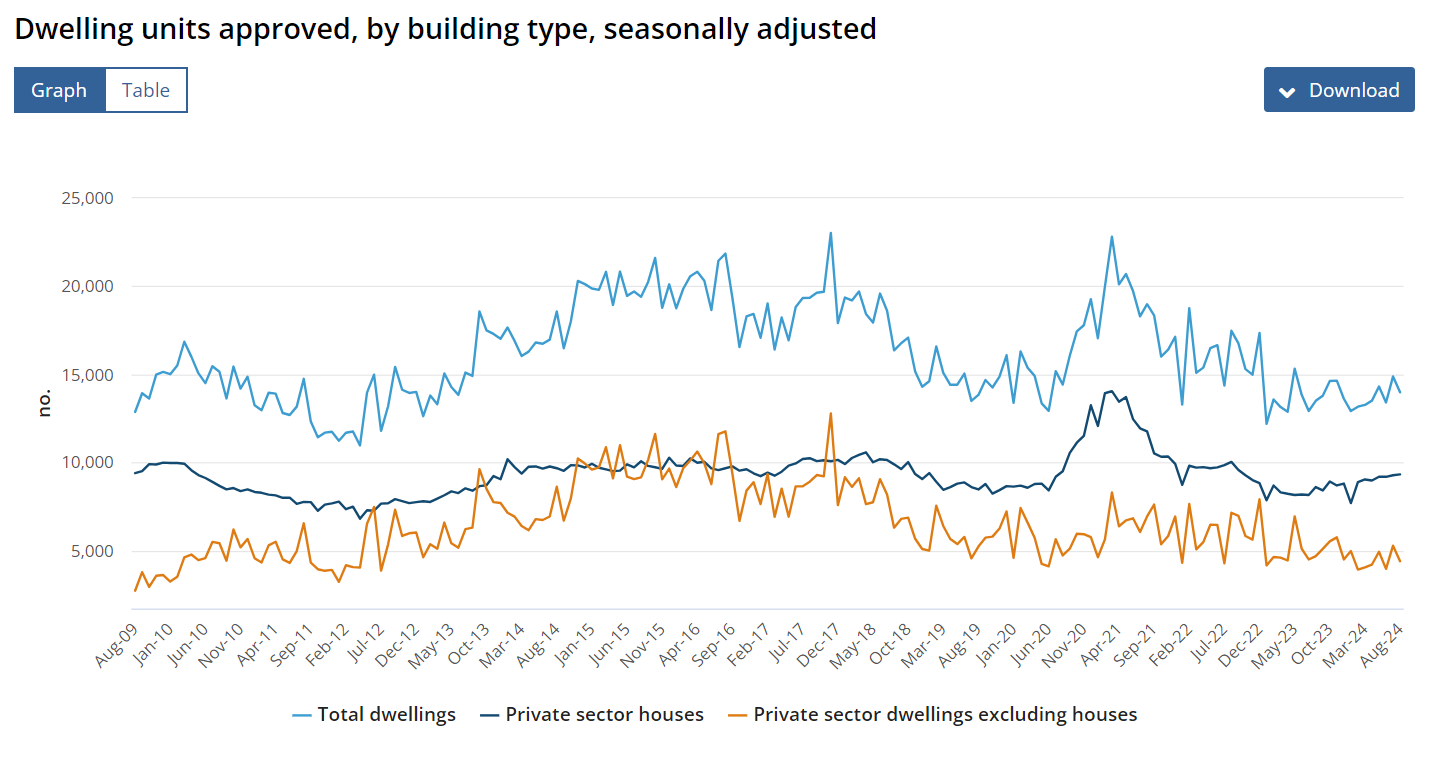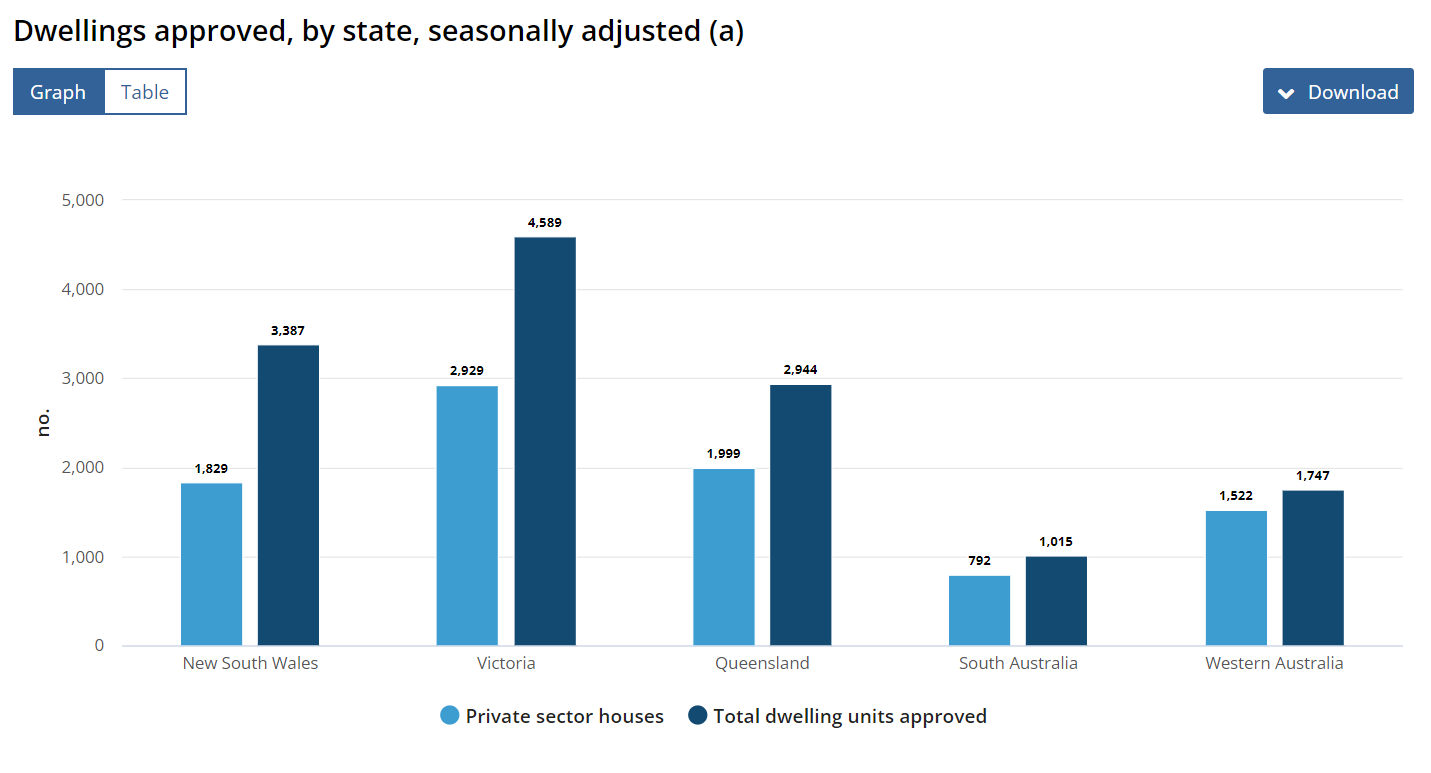

Total dwelling approvals dropped 6.1% in August, following an 11% rise in July, fresh ABS figures showed.

“The result was driven by a 16.5% fall in approvals for private dwellings excluding houses,” said Daniel Rossi, ABS head of construction statistics.
Rossi noted that the volatility in high-density apartment approvals remains a key factor.
Private sector house approvals inched up by 0.5%, reaching 9,338 dwellings, an 8.4% increase compared to August 2023.
New South Wales led the states with a 3.9% rise, while Western Australia hit its highest number of private house approvals since mid-2021.
However, this marginal increase was offset by sharp declines in multi-dwelling approvals, ABS reported.

Private sector dwellings excluding houses, such as apartments, fell by 16.5% in August, with approvals for high-density apartments particularly hard hit.
The number of apartments in blocks of nine or more stories plummeted to 1,214, down from 2,504 in July.
This steep decline has dragged down overall housing supply and sparked concerns from industry experts.
While the total value of building approvals remained mostly flat, falling just 0.2% to $13.25 billion, residential building values dropped by 6.7%.
This decline was driven by a 7.9% fall in the value of new residential buildings.
Meanwhile, non-residential projects saw an 11.5% rise in value, softening the overall impact of the downturn, ABS data showed.
Master Builders Australia has flagged the 6.1% drop in approvals as a cause for concern.
Chief economist Shane Garrett (pictured above left) highlighted the 17.5% fall in high-density approvals, stating, “The volume of approvals is now even lower than it was a year ago.”
With just 166,230 new homes approved over the past year, the current pace would deliver only 832,000 homes under the National Housing Accord – well short of the 1.2 million target.
Denita Wawn (pictured above centre), CEO of Master Builders Australia, stressed the need for high-density housing to address the housing crisis.
“It’s disappointing to see such a decline in high-density approval numbers,” Wawn said.
She urged policymakers to take stronger action to combat inflation and attract more private investors, warning that without intervention, the housing shortfall will continue to worsen.
Westpac economist Jameson Coombs (pictured above right) echoed concerns, noting that dwelling approvals are far below the 240,000 annual pace needed to meet the federal government’s 2029 goal of 1.2 million new homes.
Coombs pointed out that “the number of new approvals remains around the lowest levels recorded in over a decade.”
The Westpac economist added that while private house approvals have seen some improvement, the overall outlook for higher-density housing remains bleak due to cost challenges and construction risks.
Despite a 0.5% increase in private house approvals, Coombs warned that this trend reflects deeper issues.
“This is more a reflection of just how deep new approvals sank rather than an encouraging sign of resurgence,” he said.
Coombs noted that elevated costs, completion risks, and affordability concerns will continue to challenge the broader housing market unless structural issues are addressed.
Get the hottest and freshest mortgage news delivered right into your inbox. Subscribe now to our FREE daily newsletter.
